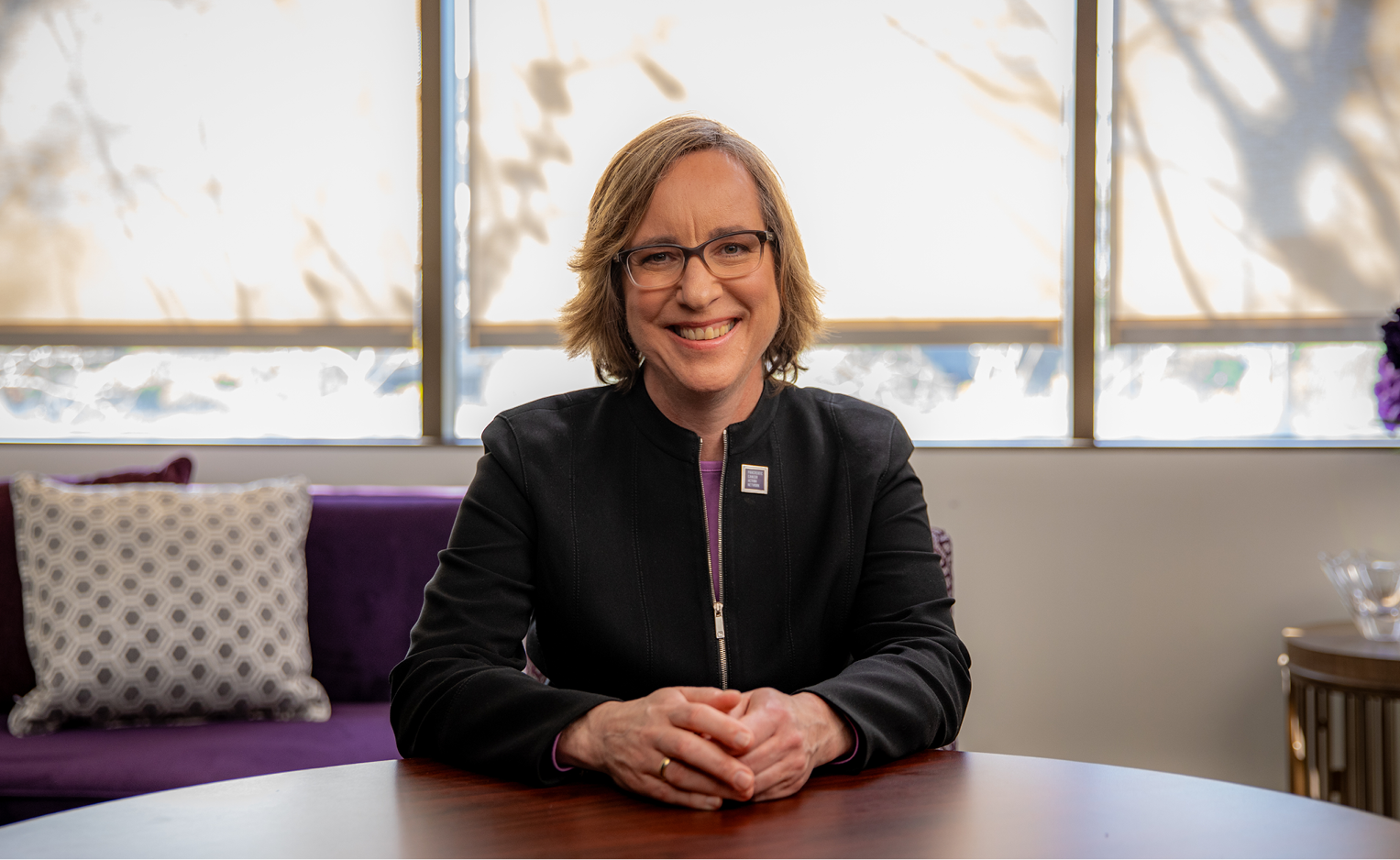
PanCAN Chief Scientific and Medical Officer, Anna Berkenblit, MD, MMSc
 Editor’s note: The “Research Spotlight” series is written by Dr. Anna Berkenblit, PanCAN’s Chief Scientific and Medical Officer. Each month, Dr. Berkenblit shares her insights into the latest news and research in pancreatic cancer. Follow Dr. Berkenblit on X and LinkedIn.
Editor’s note: The “Research Spotlight” series is written by Dr. Anna Berkenblit, PanCAN’s Chief Scientific and Medical Officer. Each month, Dr. Berkenblit shares her insights into the latest news and research in pancreatic cancer. Follow Dr. Berkenblit on X and LinkedIn.
People whose pancreatic cancer is diagnosed at an early stage have better outcomes. That’s because if it is caught early enough, pancreatic cancer can be treated initially with surgery, and patients who are candidates for surgery do better than those whose cancer is more advanced.
Currently, there is no standard screening test for pancreatic cancer that could be used for everyone – that’s because the disease is too rare, and no blood or imaging test in the general population has yet been proven to save lives in a cost-effective manner. Unfortunately, most pancreatic cancers aren’t detected until the disease has spread outside the pancreas or even to distant organs, like the liver or lungs. Advanced disease is much more difficult to treat and results in poorer outcomes.
This month, through our Change the Course campaign, PanCAN is educating the public about the risks and symptoms of the disease – including important information about family history and inherited risk – and how you can talk to your care team about pancreatic cancer. You can learn more at pancan.org/changethecourse.
Identifying folks at an elevated risk for pancreatic cancer is a critical step to diagnosing the disease earlier. While knowing the risks and symptoms and being an advocate for your health is an important step in uncovering pancreatic cancer earlier, there are developments in the space that I am confident will provide even more hope for patients soon.
For instance, the PanCAN Early Detection Initiative is partnering with healthcare systems in California and Texas to determine if people with a new diabetes diagnosis or a rapid change in their blood sugar levels may benefit from screening for pancreatic cancer. Our Early Detection Initiative is studying this population to see if we can identify those at highest risk who could benefit from further testing for pancreatic cancer.
In addition to our Early Detection Initiative, PanCAN has also funded research grants related to improving early detection. PanCAN has funded a project known as REGENERATE, which focuses on genetic education and genetic testing for people at risk for pancreatic cancer who identify as Black or Latinx. This is important because most of the genetic information collected to date applies to people who identify as white.
Laboratories around the world are working diligently to make progress in pancreatic cancer early detection. For example, PRECEDE is a global consortium working towards identifying biomarkers, or biological clues, that can aid in the earlier detection of pancreatic cancer by collecting blood and tissue samples from people with pancreatic cancer and at risk for getting pancreatic cancer. Samples such as these are critical to developing new tools for pancreatic cancer screening tests.
One of the innovations that I’m excited about is using artificial intelligence (AI) to improve early detection. AI is making access to information and identification of trends astonishingly more efficient than ever thought possible.
There are a few ways AI could improve how we detect pancreatic cancer. First, a computer may be trained to find abnormalities on an imaging scan that aren’t visible to the human eye, even a highly trained radiologist’s. There are also studies that use AI to comb through electronic medical records to identify trends in symptoms identified by patients in advance of their pancreatic cancer diagnosis. AI can also help identify small changes in someone’s blood or other specimen that may signify the early presence of the disease.
Speaking of blood tests, liquid biopsies are a hot topic in cancer biology right now. Instead of a biopsy that cuts out a piece of tumor tissue, a liquid biopsy usually refers to using a blood sample to find out if cancer may be present. This is typically done through measuring pieces of proteins, DNA, or other cellular markers that may get shed into the bloodstream to indicate the presence of cancer cells.
There are some liquid biopsy tests, sometimes called multicancer early detection tests, or MCEDs, that aim to find out if – and where in the body – a person may have any type of cancer. Others are designed to detect a specific kind of cancer, like pancreatic cancer. These tests are not currently covered by health insurance and can be costly. If someone has a positive liquid biopsy test, they will still need to undergo additional tests to see if they may have cancer, and usually a traditional biopsy would be done to confirm the diagnosis.
Although innovations like AI and liquid biopsies are not routinely used for pancreatic cancer early detection today, research taking place in labs and clinics is bringing us closer to new and improved strategies to better detect – and better treat – this challenging disease.
My hope is for more people to be diagnosed earlier either because they recognize the symptoms and see a doctor or because they know they are at risk for pancreatic cancer and can be screened, ideally with easily available tests.
This November, I urge you to learn about how you can Change the Course and spread the word about pancreatic cancer, early detection and PanCAN. And know that we are more committed than ever to continue working toward our vision of a world in which all patients with pancreatic cancer will thrive.















